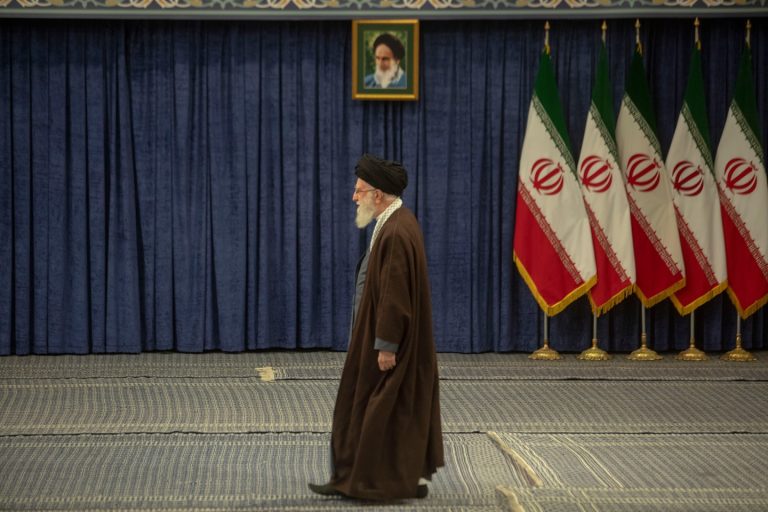“If the election is weak, everyone will be hurt,” Khamenei cajoled Iranians before the vote last week. He added: “I am not accusing anyone, but I remind everyone that we have to look at the elections from the perspective of our national interests.”
That message had little resonance, and even sparked some backlash. Participation numbers may be the lowest since the 1979 revolution that brought the Islamic regime to power. In the capital, Tehran, at least 11% of voters may have cast their votes. Ordinary Iranians cited their despair over the miserable economy, their anger over the suppression of historic protests in 2022, and their cynicism at a regime that excluded countless candidates who were not in Khamenei's hard-line camp from competing for seats.
“Voting has no value when we have no voice. It has no impact on our lives,” Masoud, a 26-year-old university student, told the Financial Times. “Voting will give a sense of security to those who will not listen to us once the elections are over. “By not voting, I can at least signal that I don’t support them.”
Khamenei and his loyalists were fully aware of this potential impact. Some conservative lawmakers urged Iranians not only to vote, but also to bring 10 friends with them. To drum up enthusiasm, some public celebrations were allowed – including scenes on social media of local candidates' supporters dancing outside to loud music – in a country where such displays are often restricted.
None of this appears to have given the mullahs in power much support. Iran is still reeling from the fallout from the historic protest movement that followed the September 2022 death of Mahsa Amini, a 22-year-old student who was being held by morality police for wearing the hijab inappropriately. News of her death sparked a stunning social uprising, with women burning their hijabs in the streets, and many issuing calls not only to reform the system, but also to throw the ruling clergy out of the windows.
The demonstrations were met with brutality, with security forces killing hundreds and arresting thousands. Many activists and civil society figures are behind bars. Among them is Shervin Hajipour, the Grammy Award-winning Iranian musician whose song “Paray” became the unofficial anthem of the protest movement. It was announced on election day that the regime had sentenced him to three years in prison on charges of “inciting riots to disrupt national security.”
“Since the protest movement, government crackdowns on freedom of expression and dissent have intensified. Execution rates have risen, conservative laws have been tightened, and repressive tactics are on the rise,” explained my colleague Susanna George. “At the same time, the country’s economy continues to fail. Prices have risen with Decrease in the value of the country's currency.
Even once-prominent regime officials realize the fragility of elections. Former President Mohammad Khatami said, according to local media, that Iran is “far from holding free, participatory and competitive elections.” Former President Hassan Rouhani was disqualified from running for membership in the Assembly of Experts, and said the regime's habit of excluding anyone outside selected candidates would “undermine the nation's confidence in the regime.”
When Rouhani was president, he was seen as a potential successor to Khamenei – a supposed “moderate” who could work more productively with the West but who was also part of the regime’s old guard. His marginalization indicates the extent to which Khamenei and his group have reached in tightening their grip on the reins of power and getting rid of the aspects of democracy that the regime often congratulates itself on.
“For years, the authoritarian Islamic Republic could claim a small degree of legitimacy by signaling the presence of a so-called ‘reformist’ faction within the regime,” noted Alex Vatanka, an Iran expert at the Middle East Research Institute. But he said that Khamenei “is no longer taking risks.”
“He is focused on consolidating control in the hands of the very few hardline loyalists he wants in positions of power when he eventually dies,” Vatanka wrote. He added: “The Iranian people can see the truth of this sarcasm and refuse to play Khamenei's cynical game.”
Khamenei acted at a time when ordinary Iranians are suffering huge economic losses. The reimposition of sanctions by the Trump administration — a move that shattered the nuclear deal reached between Iran and world powers and led to Iran once again accelerating its uranium enrichment capabilities — has undoubtedly hurt Iranian society. About 20% of the country's middle class has fallen below the poverty line, while 80% of Iranians depend on some form of government aid.
But the sanctions, say the authors of a new book criticizing these measures, have had little impact on the regime's control. Members of the hardline and influential Islamic Revolutionary Guard Corps have succeeded in enriching themselves through the black market even as the country's public and private sector companies suffer. Economic deprivation may also have limited the scope of the uprising in 2022, with few calls for mass strikes at a time of insecurity and a weak middle class.
“Iran is a great case study to actually look at this now powerful and much-used tool in American foreign policy, and examine whether or not it is effective?” Vali Nasr, one of the book's co-authors, told me at a recent panel discussion hosted by the Johns Hopkins School of Advanced International Studies. “And what we found is that it works in ways that we don't want it to work. And it doesn't work in the ways that we want it to work.”

